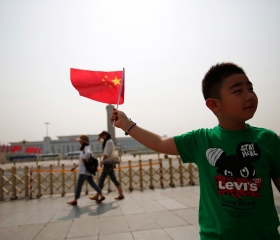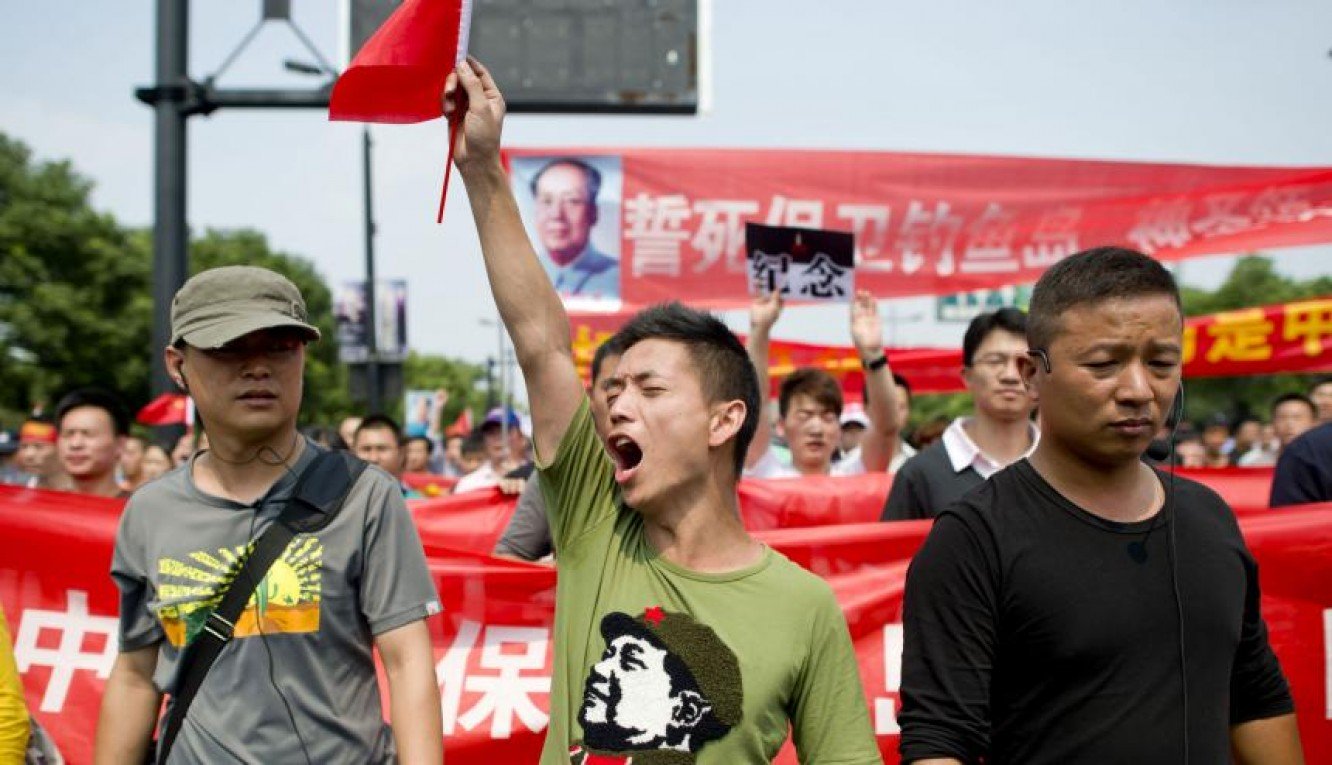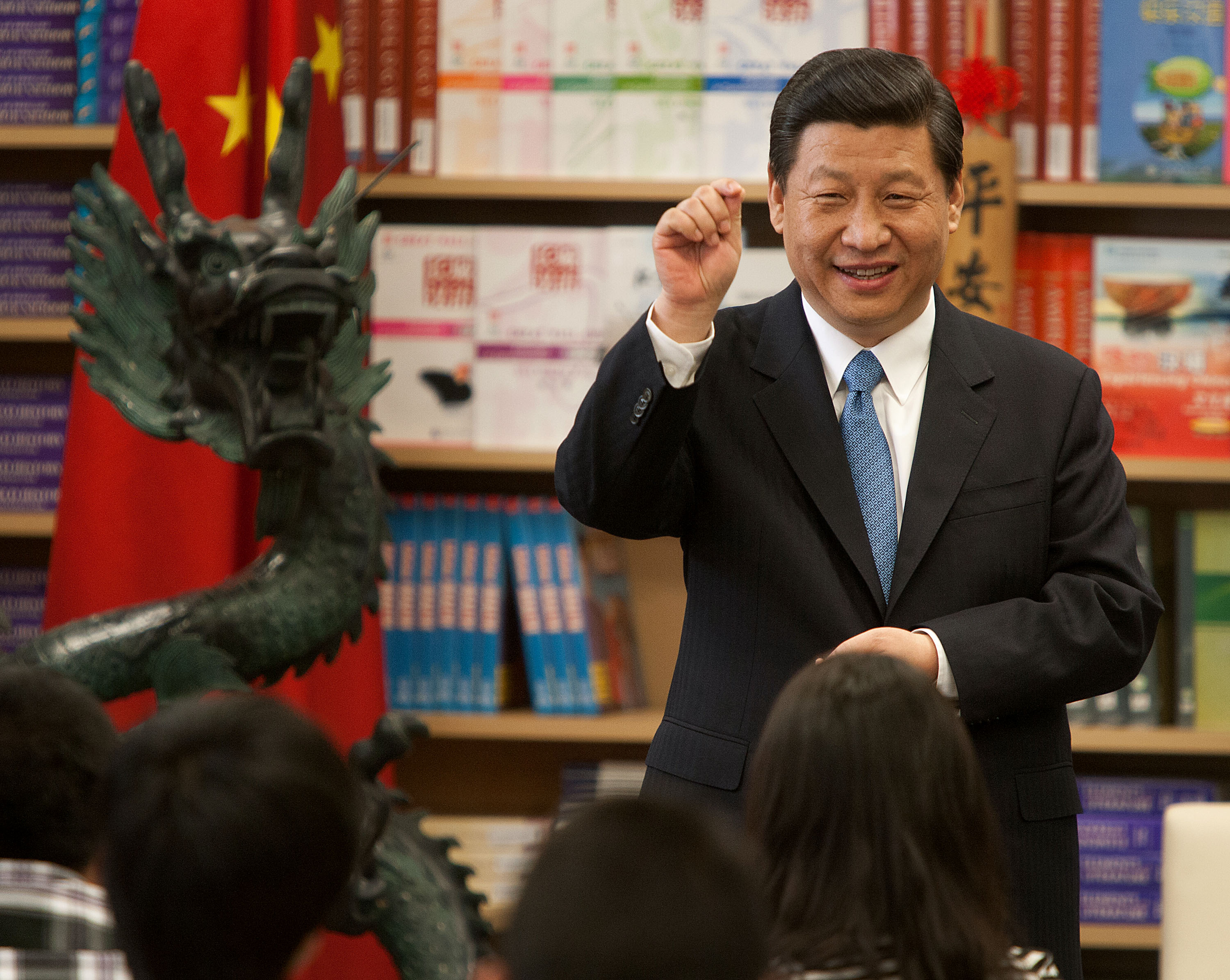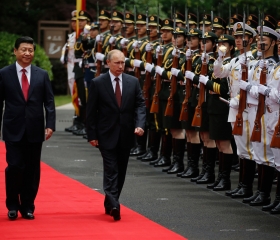Nationalism in China's Drive towards Global Leadership
In
Login if you are already registered
(no votes) |
(0 votes) |
Senior Research Fellow at RAS Institute of Far Eastern Studies
History has demonstrated to Beijing that isolation is harmful, but at the same time a forcibly imposed and unrestricted openness is unlikely to be the cure for stagnation and backwardness. Therefore, China is doing its best to regain its global economic and political leadership through a policy of openness combined with a defense of its national sovereignty, basic civilizational values and distinctiveness.
History has demonstrated to Beijing that isolation is harmful, but at the same time a forcibly imposed and unrestricted openness is unlikely to be the cure for stagnation and backwardness. Therefore, China is doing its best to regain its global economic and political leadership through a policy of openness combined with a defense of its national sovereignty, basic civilizational values and distinctiveness.
To a significant extent, China has perceived the outside world through the prism of its centuries-old history, symbolized by its ancient name Zhongguo or the Middle Kingdom, that placed it at the center of the Universe dominated by barbarians. In modern times, the Celestial Empire is not seen as such, but rather as a victim of foreign invaders, striving to become free and return its grandeur.
Isolation and Openness
The Chinese communists have changed their projections of their national future based on the environment at home and abroad. Initially, the Communist Party of China (CPC) was absolutely internationalist, whereas when the Japanese launched their aggression in the 1930s, the consolidation of all patriotic forces against the intruder came to the fore.
The return from destructive nationalism to a more constructive version surfaced after the departure of the first generation of communist leaders headed by Mao Zedong.
After the establishment of the People's Republic of China, the policy of friendship and alliance with the Soviet Union and other Socialist states did not last long. This breakup brought about isolation as deep as that prior to the Opium Wars, intensified even more by the Cultural Revolution.
The return from destructive nationalism to a more constructive version surfaced after the departure of the first generation of communist leaders headed by Mao Zedong. The policy of market reforms and openness proclaimed by Deng Xiaoping has incorporated China in processes of globalization and facilitated enormous economic and social feats, only raising the country’s international prestige and clout.
Patriotic Upbringing

Since the 1990s, nationalism has permeated all educational programs and curricula, from elementary school to postgraduate institutions, encompassing history, geography, Chinese language and literature.
At the same time, fears emerged that the move towards Western values and modus vivendi as a whole would undermine the ideological fundamentals of the ruling regime. The Tiananmen events of 1989 pushed the CPC to take measures aimed at preventing the "peaceful transformation" of society.
So, Beijing took the line of the patriotic education of youngsters. In the spring of 1991, amidst tough Western sanctions imposed on China after the suppression of student protests, CPC Secretary General Jiang Zemin instructed the government to ramp up the instruction of modern history not just in high, secondary and elementary schools, but also in kindergartens.
The policy was only bolstered by the collapse of the Communist Party of the Soviet Union, since the CPC perceived the destruction of the predominant ideology as a key cause for the breakdown of the USSR and decided to prop up its own regime with a solid nationalist foundation.
Since the 1990s, nationalism has permeated all educational programs and curricula, from elementary school to postgraduate institutions, encompassing history, geography, Chinese language and literature. The same refers to the press and electronic media.
In 1994, the CPC Propaganda Department devised the "Program for Patriotic Upbringing" intended to elevate the national spirit, consolidate the nation and raise its self-confidence [1].
This type of patriotic upbringing became comprehensive and omnipresent, employing all vehicles and methods to shape the minds and sentiments of the population at work, at rest and at school, and on weekdays, weekends and holidays through the joint efforts of the party, the government, local authorities, educational and cultural institutions, creative associations, labor unions, youths' women's and public organizations.
Radical Nationalism
The West was to be handled by capitalizing on differences between the United States, Europe and Japan.
At about the same time, the CPC developed a foreign policy designed to shore up China's political regime by strengthening the country's economic and other levers in the world, primarily in Southeast Asia, where ethnic Chinese are deeply embedded in national economies. The region was seen as the key center of resources meant to become part of the Chinese living space in the new century. Beijing also stressed the need for advancing economic cooperation with the former Soviet republics, first of all those bordering China. The West was to be handled by capitalizing on differences between the United States, Europe and Japan.
These successful reforms and openness have made the Chinese more self-respectful and confident and at the same time have toughened their approaches to the hurtful and insulting actions of other countries, which have given rise to a radical branch of Chinese nationalism, not so much defensive and protective as offensive and even aggressive.
Comparatively few in number, radical nationalists in China are very vocal and uncompromising, sometimes claiming that they express the majority’s views [2]. In the late 1990s and early 2000s, a series of blatantly anti-Western and anti-American publications [3] emerged which became quite popular by insisting that China must take over global leadership by building up its military power.
A new stage of Chinese nationalism and its realization in Beijing's policies arrived with the leaders elected by the 18th Congress of the CPC in the fall of 2012.
These negative national sentiments peaked in 1999 after the NATO bombing of the Chinese embassy in Belgrade, when the government authorized anti-American marches. According to China's Ministry of Public Security, total participation reached 700,000 and could rival only the demonstrations in the days of the Cultural Revolution [4].
In 2004 and 2005, a number of Chinese cities saw massive anti-Japanese marches against the distortion of the World War II events in Japanese history textbooks, against the visits of Japan's leaders to the Yasukuni Shrine commemorating fallen Japanese warriors, and against Japanese territorial claims and attempts to revise the U.S.-Japanese security treaty. These manifestations did much to aggravate the China-Japan relationship [5].
Another outburst of popular emotions occurred in spring 2008 during the preparations for the Beijing Olympics, when Tibet plunged into separatist unrest. People in many countries supported the Tibetans by obstructing the delivery of the Olympic flame, which electrified the nationalist-minded segment of Chinese young people [6].
The Chinese Dream
A new stage of Chinese nationalism and its realization in Beijing's policies arrived with the leaders elected by the 18th Congress of the CPC in the fall of 2012. Promptly following the event, every member of the Permanent Committee of the CPC Central Committee's Politburo headed by Xi Jinping visited an exhibition devoted to the struggle of the Chinese people for national revival dating from the Opium War of 1840 to early 2011. In a brief speech, Mr. Xi stressed that the rebirth of the Chinese nation was the greatest dream that had consolidated many generations of Chinese and reflected the common aspirations of the sons and daughters of the Chinese people [7].
By significantly increasing its share of global GDP, becoming the world's largest exporter of goods and equaling the United States in the PPP index, China has notably bolstered its economic and overall national power and appears ready to reap the geopolitical dividends. Beijing is no longer willing to abide by the warning of Deng Xiaoping about the need for diffidence and the concealment of its ambitions. Of course, China is still fairly cautious, restraining its territorial claims to neighbors in order to avoid armed outbreaks. But its foreign policy rhetoric and actions to defend its fundamental interests have become much more adamant, as Beijing is sending a clear message to its partners and opponents that no kind of external pressure can deflect its aims, domestic rules and right to shape its internal and external policies.
Toward Global Leadership
Beijing is no longer willing to abide by the warning of Deng Xiaoping about the need for diffidence and the concealment of its ambitions.
Chinese leaders are still driven by the concept of a peaceful rise to power, although the notion's emphases appear to be changing. Chinese pundits admit that peacefulness is not nearly sufficient for the long-term successful development and a country should be prepared to resort to force [8]. Hence, Beijing is building up its defense spending, modernizing its armed forces and the military doctrine, as well as taking measures to improve the readiness and morale of those forces that must be on alert to promptly carry out any decision made by the political leaders [9].
Economics is still the China's main vehicle to rise to regional and global dominance, while its foreign economic efforts are definitely merging with geopolitics. The key areas of this symbiosis are becoming increasingly diversified and the foreign policy objectives are growing in sophistication. Beijing's foreign policy strategy rests on the concept of the "new type of relations between large countries", i.e. between China and the United States. Its novelty is meant to imply that Beijing will evade a direct confrontation with Washington by aiming to build a balanced relationship. In contrast to American analysts, Chinese political scientists maintain that China is not challenging the U.S.-led world order, but is fairly competing within its limits. Beijing also insists that the two sides respect the other’s basic interests, although these do not line up in all cases. Finally, China is striving towards balanced policies, which means building ties with Russia, Europe and Africa in order to face growing U.S. pressure. In order to counter Washington's Asia pivot, Beijing is proposing the maritime and continental versions of the Silk Road project.
The Chinese and American economies are interwoven so tightly that neither side can venture to significantly damage its opponent without harm inflicted to its own interests. Hence, Beijing is trying to lower its dependence on the U.S. dollar as the global payment and reserve currency and strengthen its renminbi in the worldwide financial and economic system. Attempts are underway to reform the U.S.-dominated global financial institutions, i.e. the World Bank and International Monetary Fund. At the same time, Beijing is working to establish new international financial organizations under its own control, among them the BRICS Development Bank, the Silk Road Fund and the Asian Infrastructure Investment Bank. Shanghai is becoming progressively more competitive as the global financial center vis-à-vis London and New York.
Possessing enormous currency reserves, the PRC is gradually losing interest in U.S. government bonds, becoming a key donor for Asia-Pacific, Africa, Latin America, North America and Western Europe. According to Premier of the State Council Li Keqiang, over the next decade, Chinese companies are going to invest USD 1.2 trillion abroad.
Beijing's infrastructural efforts in various parts of the world are tremendously impressive, as its projects of creating the Silk Road Economic Belt and the 21st Century Maritime Silk Road are fuelling integration processes in the most dynamic region of the world and setting them on a China-central track.
Beijing's foreign policy strategy rests on the concept of the "new type of relations between large countries", i.e. between China and the United States.
China is fruitfully negotiating with South Korea, Australia and ASEAN countries over free trade areas. Speaking at the December 5 instructive session for the CPC Politburo members, Mr. Xi stressed that China's strategy for the enhanced establishment of such zones would help Beijing expand its role in defining international trade rules and defend its national interests by setting the norms for governing the global economy. China should not be a bystander or a follower, but rather should become a participant and a leader. At the Beijing APEC forum in November 2014, participants supported the Chinese plan for setting up the Asia-Pacific Free Trade Area as an alternative to the U.S.-driven Transpacific Partnership designed to bolster the American presence in Asia bypassing China.
Regional Conflicts
Reflecting the sentiments of the predominant majority of the Chinese society, Beijing's foreign policy definitely helps to strengthen stability at home.
Close economic ties are not sufficient in bringing about a good neighborhood, especially if it is marred by territorial disputes and grim historic memories. Although China is Japan's main economic partner, their official and especially unofficial relations are far from cordial and sometimes tend to outward enmity. Apart from the unsettled dispute over the Diaoyutai (Senkaku) Islands in the East China Sea, the Chinese cannot forget the appalling atrocities committed by Japanese invaders during World War II and the country fears the rebirth of Japanese militarism. And Mr. Xi reminded about this once more at the December 2014 ceremony commemorating the 77th anniversary of the Nanjing Massacre.
Due to sovereignty conflicts, China's relations with its Southeast Asian neighbors are also precarious. Stepping up its presence in the disputed waters of the South China Sea, Beijing vehemently rejects U.S. interventionist efforts and international arbitration, insisting that solutions must be found on a bilateral basis. To coerce the opponents towards this approach, China is combining economic and political pressure with a portion of encouragement. In some cases, this brings the desired concessions, while sometimes its opponents become unyielding and seek support from other regional powers and the United States.
Chinese Nationalism and Foreigners in China
Reflecting the sentiments of the predominant majority of the Chinese society, Beijing's foreign policy definitely helps to strengthen stability at home, assisting those domestic policies aimed at alleviating the internal contradictions aggravated over the past several years. To this end, the most significant is unprecedented anticorruption crusade that has swept away many top officials.
Also hit were foreign companies that operate in China and noticeably contribute to the development of its economy. A number of diverse firms, including transnational corporations, have been suspected of corruption, tax evasion and the monopolization of markets. The Chinese media and society have responded loudly, while in many cases the reaction was far from fair. Recently, the fiercest anger was stirred up by the violation of safety norms by a fast food company, only making the trend understandably more worrisome for foreign businesses.
Chinese leaders are unlikely to halt or restrict their policy of openness, which has brought the country undeniable gains over recent decades. But at the same time Beijing would like to compete with foreign states and companies on equal terms in all areas, except for ideology that has nothing to do with parity.
This truth was confirmed during the meeting of national leaders with culture and art figures last October, when Mr. Xi advised the audience to counter alien influences through the propagation of Chinese values and concentrate on traditional culture to reflect the aesthetic styles of the nation.
1. Notification of the CPC Central Committee on distribution of "The Program for Patriotic Upbringing". Xinhua Agency, 08/22/1994 http://news.xinhuanet.com/ziliao/2005-03/16/content_2705546.htm
2. In a 2005 poll held by the newspaper Huanqiu Shibao and the Institute for American Studies at the Chinese Academy of Social Sciences in Beijing, Shanghai, Guangzhou, Wuhan and Chongqing, 66.1 percent of respondents said they liked Americans and 61.92 percent acknowledged that the advancement of relations with the U.S.A. helps economic growth of China. At the same time, only 10.4 percent of respondents rated the United States as a friendly country, 11.7 percent found it fit for a model, and 25.6 percent – as an entity worth cooperating with. At that, 49.2 percent saw the U.S.A. as a rival, and 56.7 percent were sure that America was containing China. Lyaovan Dunfan Zhoukan magazine. 09/08/2009.
3. The first in the line was the 1996 book China Can Say NO written by five authors and published with a circulation of 50,000 copies. Within several weeks, the book became a bestseller and was republished in eight languages. It was praised by official media, which stressed that the book expressed the sentiments of the common people willing to be liberated from enslavement and servility. Semi-official media did its best to assure that it was a private initiative, while the liberal press branded the book as a primitive and lightweight piece unworthy of serious consideration. In the spring of 2009, the country saw the release of Unhappy China, a book reflecting this evolving radical nationalism, which attracted close attention both in China and in the West. The authors came out against the hegemonic foreign policy of the U.S.A. and against American influence on Chinese ideology and culture. Much attention has been paid to strengthening Chinese armed forces which are required both to defend the national territory and economic interests in other parts of the world.
4. Gries P. Tears of Rage: Chinese Nationalist Reactions to the Belgrade Embassy Bombing // China Journal #46, July 2001 Pp. 26-42
5. Watts J. Violence flares as the Chinese rage at Japan. The Observer. 17 April 2005. A survey of the Chinese Academy of Social Sciences carried out in late 2005 and early 2006 left open the possibility of a regional conflict between China and Japan over the contested oil and gas reserves in the East China Sea. Bush R. China-Japan Tensions 1995-2006. Policy Papers #16, June 2009. http://www.brookings.edu/~/media/research/files/papers/2009/6/china%20japan%20bush/06_china_japan_bush.pdf
6. Rumzy A. China`s view of the Olympic Torch War/ Time/ 04/09/2008
7. Gūangmíng Rìbào 11/30/2012
8. On June 10, 2014, several Chinese newspapers published an article floating the idea that the selective use of arms would not contradict peaceful development. Huanqiu Shibao. 06/10/2014.
9. Political instruction in the People's Liberation Army is defined by rules approved by the CPC Central Committee and the Military Council of the CPC Central Committee in 2003 and updated in 2010, as well as by the current guidance of the CPC leaders.
(no votes) |
(0 votes) |







